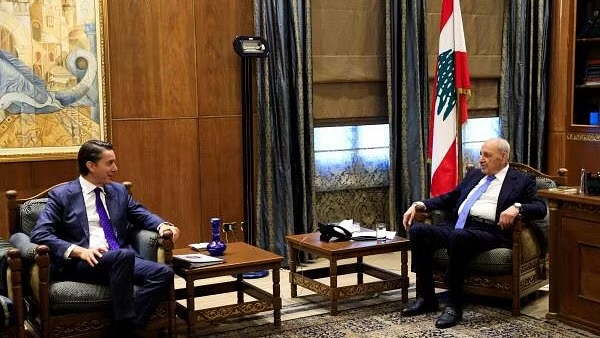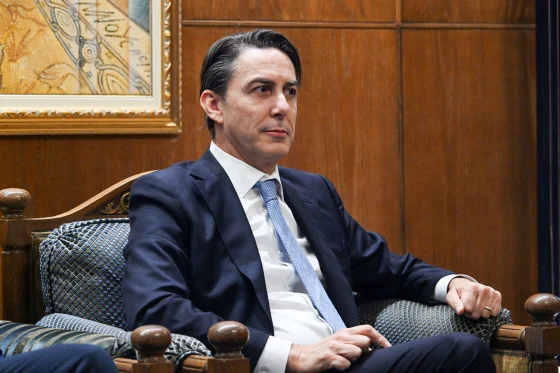U.S. envoy Amos Hochstein arrived in Beirut Tuesday for crucial negotiations, following positive signals from both Lebanon’s government and Hezbollah regarding a Washington-drafted cease-fire proposal with Israel, Lebanon’s state news agency reported.

The diplomatic mission marks a potential breakthrough in U.S.-led efforts to halt the escalating conflict that erupted into full-scale warfare in late September, when Israel launched a major offensive against the Iran-backed Hezbollah.
Ali Hassan Khalil, an aide to Parliament Speaker Nabih Berri, confirmed to Reuters that both the Lebanese government and Hezbollah have reviewed the written U.S. proposal submitted last week, offering their preliminary approval with some modifications. Israel has not yet publicly responded to the proposal.
Hezbollah has authorized Berri, its longtime political ally, to lead cease-fire negotiations. However, military engagement between both sides has intensified even as diplomatic efforts continue. Khalil acknowledged Israel’s attempt to negotiate “under fire,” referring to increased bombardment of Beirut and Hezbollah-controlled southern suburbs, but insisted these actions would not alter Lebanon’s negotiating stance.

A diplomat close to the negotiations cautioned that while progress has been made, several details require resolution before a final agreement can be reached. The proposal reportedly aligns with UN Security Council Resolution 1701, which ended the 2006 Hezbollah-Israel conflict and mandates the absence of armed Hezbollah forces between the Lebanese-Israeli border and the Litani River, approximately 30 kilometers north of the frontier.
While Khalil declined to specify Lebanon’s proposed modifications to the draft, he emphasized they were presented “in a positive atmosphere” and maintain consistency with Resolution 1701’s framework.



